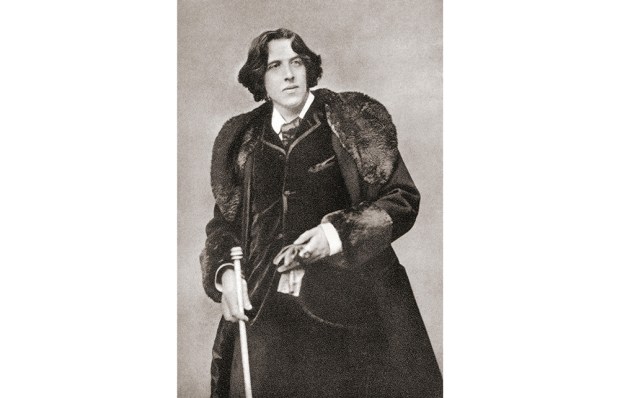Here are a couple of books that seek to tackle the difficult issue of comedy on the front line. One deals with an increasingly toxic global cultural war; the other plunges into the battle to take on jihadists by laughing at them. In their different ways both ask the same questions: what’s funny and what’s not? And both examine the consequences of challenging those who police what is and what is not considered acceptable. Find yourself on the wrong side of cancel culture and you lose your career. Take on the jihadists and you lose your head.
Andrew Hankinson, a journalist and writer from Newcastle, is the author of the cult study You Could Do Something Amazing With Your Life [You Are Raoul Moat], a modern take on Truman Capote’s In Cold Blood. In Don’t Applaud: Either Laugh or Don’t he tells the turbulent story of New York’s Comedy Cellar, a bijou basement club founded in 1982 by the onetime Israeli taxi driver Manny Dworman, a man for whom free speech was sacrosanct and total. Small in size, the club has been big in national comedy. Its tiny stage has hosted, among others, Robin Williams, Chris Rock, Jerry Seinfeld, Jon Stewart, Amy Schumer and, much more problematically in recent times, Louis CK. Since Manny’s death in 2003, the club has been run by his son Noam.
As recently as 2017, Rolling Stone magazine ranked CK, as he is widely known, fourth on its list of the 50 best stand-ups of all time. Later that year came the ‘penisgate’ revelation that CK had been guilty of sexual misconduct, masturbating in front of female comics and writers. He was dropped like a hot potato and later claimed he had lost $35 million in income. Then came the comeback and a controversial appearance at the Comedy Cellar. Some in the audience walked out, others lapped up the routine. Someone tweeted a threat to firebomb the club. We know where Dworman’s sympathies lie. He tells the author:
It’s a man, a broken man, kind of speaking to a small group of people who are voluntarily listening to him and laughing, yet hundreds of millions of people who couldn’t find Yemen on a map regard this as vitally important to the world.
Hankinson is an unusual writer with an unusual style. Verbatim interviews with his subjects rattle along briskly. Manny’s comedy club is a tribute to the ancient Jewish tradition of freewheeling debate, a way to ‘discuss the current day version of holy books with the learned men’. In the final analysis, of course, the culture wars are all about power and where it resides. And the balance of power is shifting towards those who would police what is and is not acceptable speech, whether on the stage of the Comedy Cellar, in public and in private life, anywhere and everywhere. Manny would be horrified.
When it comes to the acceptability of laughing at people who want to kill us, we venture on to more dangerous ground. However grating to listen to, a shrill New York ultraliberal thirtysomething is probably less of a threat to our wellbeing than a bearded man ready to self-detonate in our midst. These days, I suspect, many of us thoroughly approve of using comedy as a weapon against the drearily predictable, puffed-up popinjays that are 21st-century jihadists.
Which is why Joking about Jihad is such a timely and important subject. What role can humour play in undermining the brainwashed young men and women who think killing themselves and others is a decent career path? That is a serious and valid question. By the end of this book, however, one wonders whether academics are the right sort of people to confront it. On page one the authors declare that ‘“Arab world” and “Arab” are contested terms’, at which point I confess my morale faltered. Inadvertently, perhaps, Gilbert Ramsay and Moutaz Alkheder, who both work at the University of St Andrews Centre for the Study of Terrorism and Political Violence, illustrate the perils of writing too seriously about comedy:
Ultimately, by tracing the roots of humour, we isolate four ideal type mechanisms that are relevant to the intersection of humour and conflict, which we term: pillory, travesty, raillery and coxcombry.
Come again?
Some of the most interesting material details the homegrown Arab comedic responses to the jihadists, from Lebanon and Egypt to Syria and Iraq. It requires rather more courage to take on the enemy on its home patch. The authors make a valiant case for a jihadist sense of humour, though the ‘jokes’, or what pass for them, fall distinctly flat. It is a pity, given the book’s excellent title, that laughs are so thin on the ground here (there are, meanwhile, 47 pages of notes and bibliography). So let us end with a couple of jokes of our own. Where do suicide bombers go when they die? Everywhere. Why did the terrorist’s wife leave him? Because she didn’t know what jihad. Boom boom.
Got something to add? Join the discussion and comment below.
Get 10 issues for just $10
Subscribe to The Spectator Australia today for the next 10 magazine issues, plus full online access, for just $10.
You might disagree with half of it, but you’ll enjoy reading all of it. Try your first month for free, then just $2 a week for the remainder of your first year.














Comments
Don't miss out
Join the conversation with other Spectator Australia readers. Subscribe to leave a comment.
SUBSCRIBEAlready a subscriber? Log in